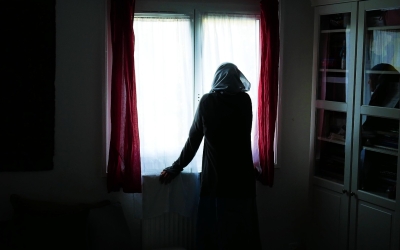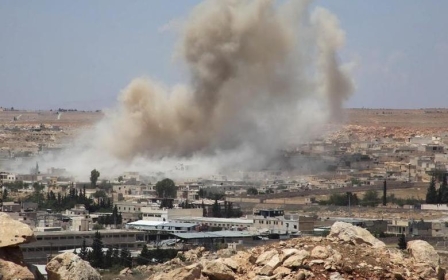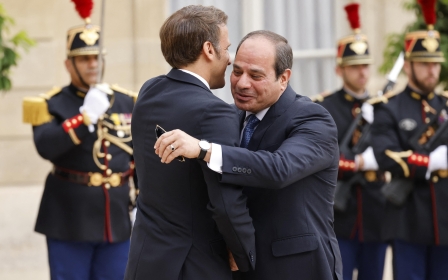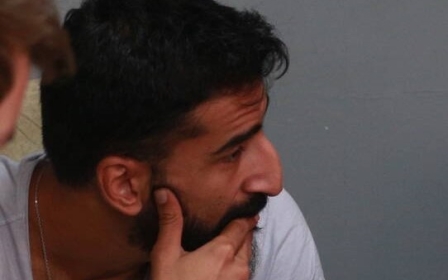Syria camps: European court calls on France to 're-examine' refusal to repatriate women
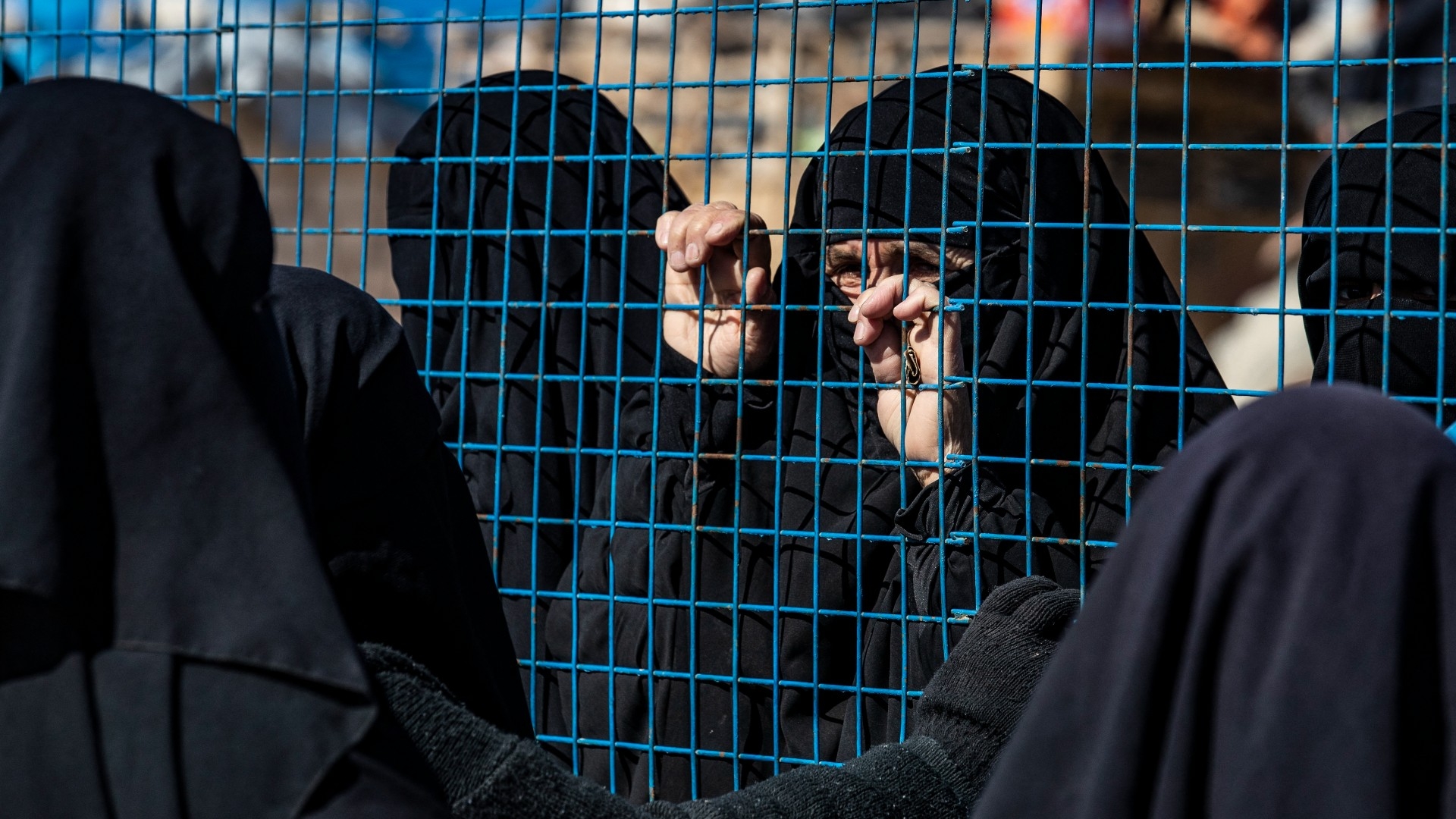
The European Court of Human Rights (ECHR) has called on France to re-examine its decision to refuse to repatriate two French women held in detention camps in northeast Syria.
The case was brought by the parents of the women, who had travelled with their partners to parts of Syria and Iraq then controlled by Islamic State (IS).
The court ruled on Wednesday that the French government would be “expected to promptly re-examine” the request in order to safeguard the women against the “arbitrariness” of the refusal. The ruling did not outright call on the two to be repatriated.
The French nationals are among roughly 60,000 women and children who live in two sprawling Kurdish-run camps, al-Roj and al-Hol, in the semi-autonomous Hasakah region of Syria.
One of the women, known as L, left France for Syria on 1 July 2014 with her partner, who died in February 2018. The couple had two children, who are believed to be held in one of the camps with L.
The other woman, M, travelled with her partner from France to Iraq’s Mosul in July 2015, and a year later to Syria.
She gave birth to one child, who is thought to be held with her in al-Roj, where they were transferred from al-Hol two years ago.
The families of both women say the lives of their daughters and grandchildren are at risk, due to disease and malnutrition rife in the camps.
Marie Dose, a lawyer for several families, told MEE that Wednesday's judgement was a "huge victory and a real relief for the families".
'France has just been condemned'
Marc Lopez, a retired civil servant whose daughter-in-law and four young grandchildren have been in al-Roj for more than three years, helps run Le Collectif des Familles Unies (Collective of United Families), a group of roughly 130 French families from across the country with relatives in the camps.
Speaking to Middle East Eye from Strasbourg, he said: "France has just been condemned for having acted arbitrarily in its policy of non-repatriation.
"Now France must decide to repatriate all the children languishing in the Syrian camps with their mothers. Not a single French-born child should remain there.
"This judgement should have an impact on other countries, such as England and Spain. The families now await action."
Albert, a former telecoms engineer and trade unionist from Brittany, whose daughter, Gaelle, has lived in Roj with her young son for years, told MEE: "We need everyone to be repatriated, and quickly. The worst thing would be if they spent another winter there."
Sarah St Vincent, executive director of the organisation Rights and Security International, said that the court had "made an important move to prevent European governments from treating the Syrian camps as a legal black hole where they can dump unwanted people, including children."
She added that the judgement was "cautious, but it shows that governments should not be cancelling the citizenship of people stuck in disastrous, life-threatening conditions overseas, and then denying them access to courts where they can challenge those decisions."
Human Rights Watch also welcomed the move.
Benedicte Jeannerod, the director of HRW France, said: "France should take this judgement as a wakeup call and promptly repatriate all French children and their mothers still detained in the region, as well as other French nationals held there.
"All other countries under the court's jurisdiction whose nationals are unlawfully detained in northeast Syria should do the same."
Earlier this year, the United Nations said that over 100 people, including many women, had been murdered in al-Hol camp in just 18 months.
France is the country with the most western nationals held in the camps, with around 300 women and children.
The father of a 29-year-old French woman transferred to Roj told MEE in February that his daughter and her three young children barely left their tent in al-Hol out of fear.
“She [was] petrified that Daesh would return,” he said, using a different acronym for IS.
In July, the French government announced the repatriation of dozens of minors and 16 mothers linked to suspected Islamic State members.
French government response
In a statement, France's foreign ministry cited those repatriations, saying that it had not waited for the court's decision to take action to bring home "minors in distress".
It noted the court had ruled that France could not be held responsible for conditions in the camps and that it had no obligation to repatriate French nationals, but only to review their requests.
It said: "We will consider repeating this type of repatriation operation whenever conditions make it feasible, on the basis of developments in the situation on the ground and the security conditions surrounding the detention of French nationals in camps in northeastern Syria."
Middle East Eye propose une couverture et une analyse indépendantes et incomparables du Moyen-Orient, de l’Afrique du Nord et d’autres régions du monde. Pour en savoir plus sur la reprise de ce contenu et les frais qui s’appliquent, veuillez remplir ce formulaire [en anglais]. Pour en savoir plus sur MEE, cliquez ici [en anglais].


